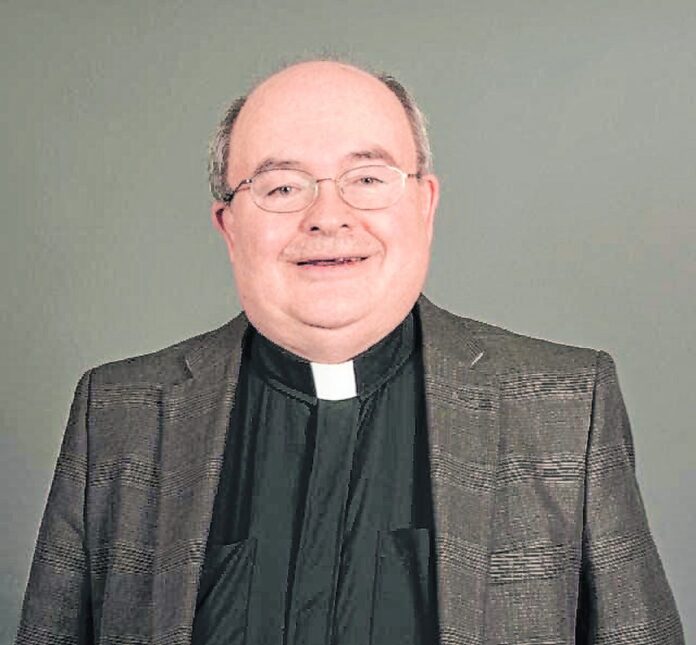“The best day of my life was when I resigned as president of the universe.”
I heard those words spoken by a man who was trying to “control” everything and everyone around him. He spoke the above words when he was asked to explain something else he had said:
“I have a wonderful sense of freedom! I have discovered that God is God. And that means I don’t have to ‘play God’ anymore. I am free!”
German theologian Eugen Drewermann suggests that our most dangerous and unproductive fantasy is “to be like God.” He bases this claim on his reading of Genesis, chapter 3, the story of the serpent, Eve and Adam.
In Genesis 3:15, the serpent says that when the first parents eat “the forbidden fruit” they will now “be like God” in their knowledge/awareness of good and evil.
This strange story is more complex and mysterious than we think. Drewermann argues that Adam and Eve were already “aware” they already had knowledge. But what the serpent introduces into the picture is “the spell of fear.” Our ability to reflect and “magnify” the world and God — in our minds — can be used in the service of “fear.” For the first time, the human being looks at the world “under the spell of fear.”
Our ability to think and reflect is both a blessing and a curse. The “curse” is that we magnify our fears in relation to God. In our fears, we turn God into a veritable monster, even a demon.
And so we sometimes magnify the idea that God is willing to drop us like a hot potato. We figure we have, somehow, “lost God.” This all leads to some important and frightening things.
The upshot of all this is that when we think we have lost God, we will do everything we can to replace God. This move to replace God is the birth of false idolatry.
The spell of fear causes us to wildly distort our view of God. We see God almost as a devil rather than as the loving God. The God we see — through eyes of fear — is ambivalent. Maybe this God really loves us, and maybe this God really does not love us. That is certainly one ambivalent parent figure.
In our fear that God has abandoned us, we make idols out of wood, stone, money, success and even our own selves. We live under the spell of fear and therefore we try to be like God through our own efforts.
This spell of fear is also the birth of our desire to “save ourselves” through our own good works. Our own good works become false idols that replace God. All of this, of course, gives rise to counter movements like Lutheranism and Calvinism within Christianity.
But that reality is fodder for a separate article on how many Christians continue to live “under the spell of fear” and even organize their church lives around that fear.
Our desire to be like God or our desire to be God leads us to play God.
We play God when we demand that that our families and our community bend completely to our vision and to our goals. And, of course, our vision and our goals are seldom presented as ours; they are often presented as belonging to God. That, too, is a move as old as Eden.
The desire to be God shows up in our attempts to control others and force them to see things as we see them. This is a disease from which many clergy suffer.
I use myself as an example. I had the disease when I first entered the ministry. I was surprised the day I was talking to a retired pastor who attended my first congregation’s worship.
I was telling him how my congregation just didn’t seem to get it. I was complaining about how blind the people were to the vision I believed God had for them. Pastor Lee Sarver responded to my grumbling:
“Larry, you will eventually come to the place where you love your people for who they are — instead of loving them only for who you want them to be.”
I was surprised. I had never thought of that. And it would be years before I had some understanding of what Pastor Sarver was trying to tell me. He was a wise man. Now, I know that. I did not know it in 1986.
Love people for who they are — not for whom you want them to be.
That wisdom can make the difference between good and bad parenting, just as it can make the difference between good and bad pastoring.
Love people for who they are — not who you want them to be.
That seems like simple advice; but as we all live under the spell of fear, it is very hard advice to follow. The first step toward living well is to realize the truth of those words and also of these words: God is God, and that means that I am not.
Realizing that only God is God, and that God is the God of love and not of hate, is the first step in giving up our own attempts to control and our own attempts to replace God.
I am so glad that God loves me for who I am. God does not love me for who or what I might become.
No! God loves me, as the classic hymn reminds us, “Just as I am, without one plea.”
The Rev. Larry Isbell is pastor of First Lutheran Church in Columbus. He can reached at [email protected].





